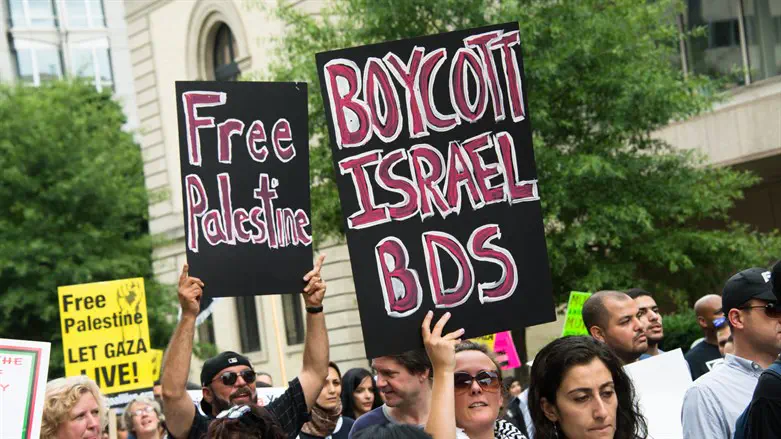
The President of Sonoma State University, a public liberal arts college in California, announced on Wednesday he is stepping aside, at least temporarily, after a controversial agreement with pro-Palestinian Arab protesters that includes an academic boycott of Israel and a role for student activists to enforce the deal, reported The Press Democrat.
The agreement, announced late Tuesday by President Mike Lee and campus activists, stipulates the institution will not pursue formal academic collaborations with Israeli institutions, including study abroad programs, according to Bloomberg.
The school has also committed to creating a divestment strategy that “includes ethical alternatives,” but it stopped short of agreeing to divest Israel-linked entities from the university’s endowment.
“None of us should be on the sidelines when human beings are subject to mass killing and destruction,” Lee said in a message to the campus community.
The move by Sonoma State follows nationwide efforts by colleges to address weeks-long pro-Palestinian Arab encampments on campuses across the US.
While universities such as Harvard, Rutgers and Northwestern have engaged with activists, they’ve rejected demands to divest from Israeli assets or defense stocks, citing the complexity of investment structures, donor concerns and potential legal issues.
The Sonoma State move appears to go beyond what other major US universities have so far conceded to.
State Senator Scott Wiener, an outspoken critic of the campus protests, said in a social media post on Wednesday that the agreement “aligned the campus with BDS”.
A particularly contentious part of the Sonoma State agreement designates Students for Justice in Palestine as the sole authority to appoint members to a new advisory group tasked with overseeing the agreement’s implementation along with administration staff, according to Bloomberg.
Stephen Bittner, chair of the Sonoma State history department and director of its Center for the Study of the Holocaust and Genocide, said he was “completely blindsided” by those provisions and finds them highly problematic.
“The academic boycott of Israel is atrocious and morally reprehensible, in my view,” he told The Press Democrat newspaper on Wednesday. “It is contrary to the values of scholarly freedom, and free exchange, that are supposed to be at the center of any university.
“We do not shun people we disagree with. We interact with them. I am deeply disappointed in President Lee for caving to pressure to participate in a boycott of Israel,” added Bittner.
In an email late Wednesday afternoon announcing his immediate departure, Lee wrote, according to The Press Democrat, “As president, my focus is on how to best serve our students and our campus community. My goal when meeting with students at the encampment was to explore opportunities to make meaningful change, identify common ground and create a safe and inclusive campus for all. I now realize that many of the statements I made in my campus-wide message did just the opposite.”
“In my attempt to find agreement with one group of students, I marginalized other members of our student population and community. I realize the harm that this has caused, and I take full ownership of it. I deeply regret the unintended consequences of my actions,” he added.
“I want to be clear: The message was drafted and sent without the approval of, or consultation with, the Chancellor or other system leaders. The points outlined in the message were mine alone, and do not represent the views of my colleagues or the CSU.”
A series of anti-Israel encampments have been set up at campuses across the US in recent weeks. Some of them have been taken down by police officers, while others have been cleared voluntarily following agreements with the administrations.
On Tuesday, anti-Israel protesters were voluntarily taking down their tents in Harvard Yard, after university officials agreed to discuss their questions about the endowment.
Last Thursday, LAPD and California Highway Patrol cleared an anti-Israel protest encampment on the UCLA campus, arresting 132 people.
Later, the Los Angeles Police Department removed a pro-Palestinian Arab encampment at the University of Southern California, pushing several dozen people out of the campus gates.
In another incident, police in riot gear cleared an anti-Israel encampment at the University of Chicago.
At Cornell University, meanwhile, the student encampment disbanded peacefully, with neither arrests being made nor a deal being reached with management.
